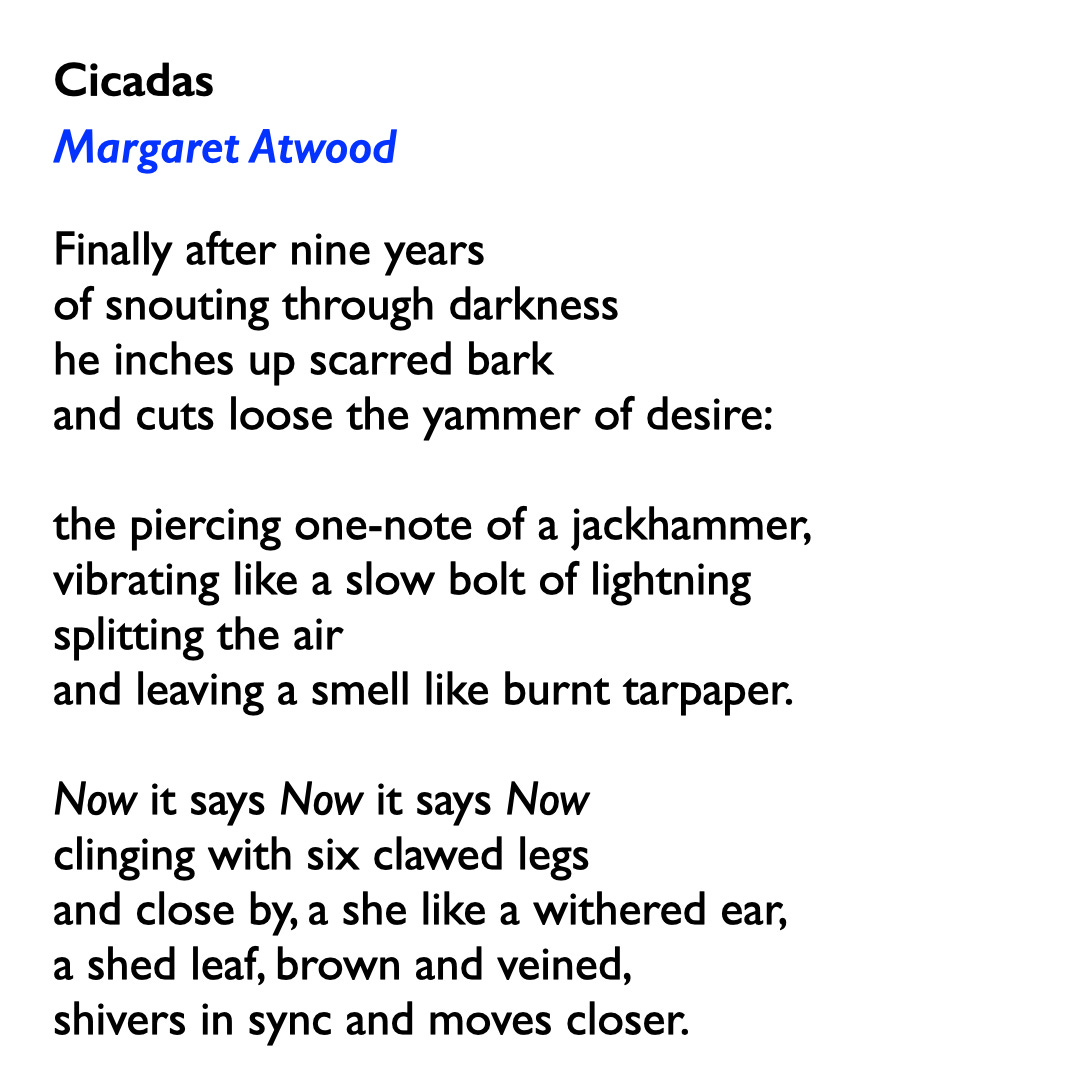It is Margaret Atwood’s birthday today.
Atwood has unearthed futures with vivid detail, and pasts with scathing honesty, from the morass that is the present. Her pen forgives no one, and with lyrical intensity, she has the reader rethinking identity, and the politics of our places in this world. When she released her latest book of poems in 2020, Dearly: Poems , she talked a little bit about poems and their impact in an article in The Guardian, where she also shares the eponymous poem from the collection:
“…poems are embedded in their time and place. They can’t renounce their roots. But, with luck, they may also transcend them. All that means, however, is that readers who come along later may appreciate them, though doubtless not in the exact way that was first intended. Hymns to the Great and Terrible Mesopotamian Goddess Inanna are fascinating – to me at least – but they don’t cause the marrow to melt in my bones as they might have done for an ancient listener: I don’t think Inanna may appear at any moment and level a few mountains, though I could always be wrong about that.
Despite the way the Romantics went on about timeless fame and writing for the ages, there’s no “forever” in such matters. Reputations and styles rise and fall, books get spurned and burned, then unearthed and recycled, and today’s singer for eternity is likely to end up as the day after tomorrow’s fire starter, just as the day after tomorrow’s fire starter may be snatched from the flames, extolled and embossed on a plinth. There’s a reason the Wheel of Fortune in the tarot pack is, in fact, a wheel. What goes round comes round, at least sometimes. It’s not called the Inevitable Straight Road Pathway to Fortune. There isn’t one.
That advance warning having been issued, I’ll quote the postman in the film Il Postino, who’s nicked Neruda’s poems and ascribed them to himself in order to serenade his love. “Poetry doesn’t belong to those who write it,” he says. “It belongs to those who need it.” Indeed, after the poem has passed out of the hands of the one who’s written it down, and after that person may have departed from time and space and be wafting around as atoms, who else can a poem belong to?
For whom does the bell toll? For you, dear reader. Who is the poem for? Also for you.
I’m sharing 2 poems from her latest collection of poetry (I’ve shared all my other favourites before) - ‘This is a photograph of me’ & ‘you fit into me’ , ‘I was reading a scientific article’ & ‘Variations on the word Sleep'.
Oh and yes, Happy Birthday Margaret Atwood!
If you like what you read, do consider ‘buying me a coffee’.
(Matlab, if you can’t, that’s also fine, obviously. This is a free newsletter)
Note: Those, not in India, who’d like to support the work I do at Poetly, do write to me - poetly@pm.me. (Paypal has left the building)
Thanks for reading Poetly! Do subscribe if you are not reading this in your inbox. Cheers!






